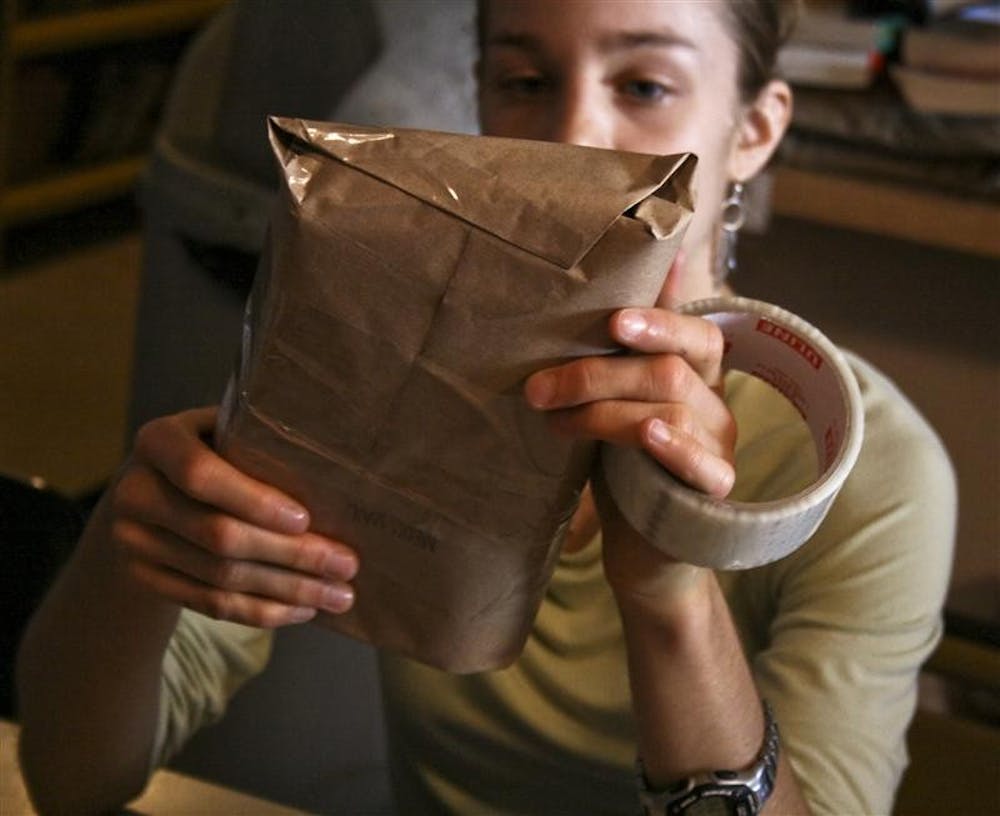Most book lovers cringe at the thought of ripping the cover off a book. But for the Midwest Pages to Prisoners Project, the act is a common occurrence.
The group fills requests from prisoners across the Midwest, Arizona and Florida in an attempt to promote self-education and improvement in the nation’s correctional facilities.
Many of these facilities do not allow hardback books. Organizers have been told that being in prison can prompt prisoners to use anything – even the hard cover of a book – to try and break out, which is why the covers must be ripped off.
But this does not stop the Pages program.
“It’s important because there’s a huge demand for it,” said general coordinator Geoffrey Hing. “There are lots of incarcerated people who want reading materials. I think it’s important everyone in our society has access to education and information. We’ve chosen a group with more barriers than others.”
In the mid 1990s, Pages for Prisoners began working in conjunction with Boxcar Books, a volunteer-run bookstore and community center now located on East Sixth Street. While the two groups shared a volunteer base and physical space for some time, Pages for Prisoners recently moved to South Rogers Street.
“If Pages didn’t operate in partnership with Boxcar,” Hing said, “we couldn’t exist.”
The prisoner population is one that is often overlooked or hastily generalized, Hing said.
The work done by Pages can be overwhelming. Orders are currently five to six months behind, as requests are coming in at a rate of about 100 per week. Still, however large the demand is, the importance of the project is to approach the incarcerated population on a more personal basis.
“They’re individuals with individual stories and individual experiences,” Hing said. “That needs to be acknowledged. We can’t generalize the experience of incarcerated people.”
The New Castle Correctional Facility, located about 100 miles from Bloomington, is one of the facilities that receives books from the Pages program. Jay Hamm is a master level therapist in mental health counseling at the New Castle Facility. With the help of Pages, he began a “bibliotherapy” program nine months ago. Hamm’s goal is to provide his clients with books that might be therapeutic in some way.
“The most popular books have been ‘The Autobiography of Malcolm X,’ ‘A Place to Stand’ by Jimmy Santiago Baca and Viktor Frankl’s ‘Man’s Search for Meaning,’” Hamm said. “A lot of guys in prison are feeling pretty hopeless. All three of those have some inspirational prison story. It’s certainly not a miracle cure, but it’s not an easy place to be, and it helps them to know they’re not the only people going through these types of things. ... They can take away their freedom, but they can’t take away their minds.”
As much as it addresses the current needs of prisoners, Pages’ work has long-term implications as well.
“Ninety-five percent of prisoners get back into the community,” Hamm said. “The more psychological stability they have, the better. You can’t expect someone with serious psychological problems, often acquired in prison, to suddenly snap out of it once they get out.”
Pages has done quite a bit of work for the New Castle facility. According to library supervisor Jenny Smith, two donations from the organization increased the facility’s collection from 4,000 to 10,000 books.
“This gives them something to do and a way to learn and keep up with the world,” Smith said. “Reading gives them a little bit of normalcy.”
While he believes in his work, Hing insists the nation’s criminal justice system does little to address crime and other safety issues in society.
“Pages is a band-aid,” Hing said. “We need a fundamental change in how we look at safety and accountability in our communities. ... Incarceration is not making us as safe as we want to be.”
Pages volunteers have benefited just as much as the prisoners.
“The idea of being around books and literature is really appealing to me,” volunteer and senior Greg Stocking said. “Giving it to people who don’t have it is great. We take it for granted out here.”
Other lessons are more straightforward.
“I’ve learned not to go to prison,” said volunteer and third-year graduate student John Smith.
Inside the prison walls, the program seems to be working. Some clients of Hamm often ask him if he has received additional books. One in particular had only one request for him: to “keep the books coming.”
Volunteers help send books to prisoners across the country

Get stories like this in your inbox
Subscribe





